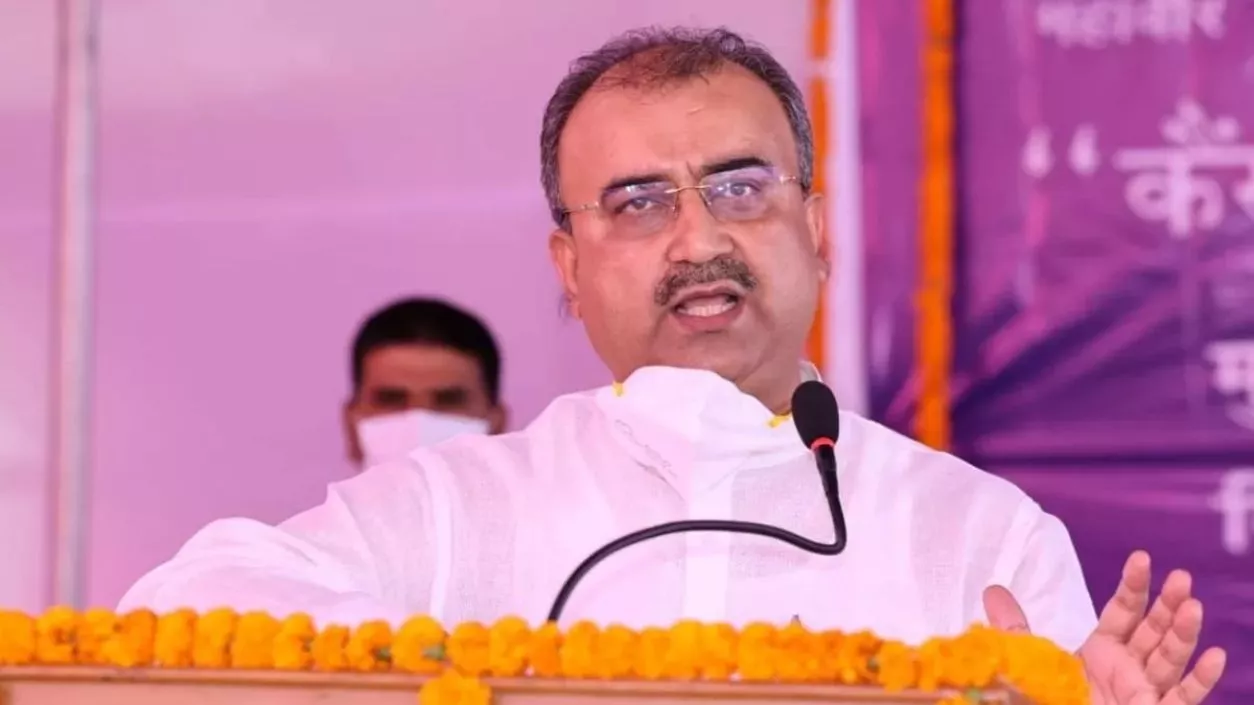SC halts mosque survey orders, restricts lower courts in pending cases
.gif)
.gif)

Bihar's Agriculture Minister, Mangal Pandey, held a review meeting at the Agriculture Bhawan in Patna on Monday to evaluate the progress of various agricultural schemes implemented in the state. The meeting focused on both state-funded and centrally sponsored schemes aimed at improving farming practices and providing necessary resources to farmers. A key instruction from Pandey was the prompt payment of pending diesel subsidies. He directed officials to clear all outstanding diesel subsidy dues within 15 days, ensuring timely financial assistance to farmers who rely on the subsidy for fuel used in farming activities.
The Minister also reviewed the status of key agricultural schemes in the state. These included the Traditional Agriculture Development Scheme, which focuses on supporting conventional farming methods; the Chief Minister's Rapid Seed Expansion Scheme, designed to enhance seed distribution and accessibility; and the Pulses Crop Promotion Scheme, which encourages the cultivation of pulse crops to diversify farming. Additionally, the Krishonnati schemes, which provide financial and technical support to farmers, were also reviewed. These programs are designed to help improve productivity, enhance agricultural practices, and provide better income opportunities for farmers.
Pandey placed significant emphasis on organic farming and directed that efforts be intensified in this area. He highlighted the importance of organic farming for sustainability and long-term agricultural health. As part of this initiative, the state aims to increase the adoption of organic farming techniques by farmers and provide necessary support, including training and resources. In line with improving soil health, the Minister reviewed the status of soil testing laboratories across the state and stressed the need to strengthen these facilities. He set a target for completing the issuance of Soil Health Cards to farmers by the end of the current fiscal year.
The National Agriculture Development Scheme was also reviewed, focusing on its ongoing efforts to provide better infrastructure and support for agricultural practices. This scheme includes enhancing irrigation facilities, improving the distribution of fertilizers, and providing financial assistance to farmers for sustainable farming practices. Pandey also discussed the integration of unmanned aerial vehicles (drones) for pesticide spraying. The use of drones is expected to improve the efficiency of pesticide application by ensuring accurate coverage and minimizing wastage, while also reducing the health risks associated with chemical exposure.
In addition to reviewing agricultural schemes, Pandey addressed infrastructure developments, including the ongoing work to connect the office buildings at the Agriculture University in Sabour, Bhagalpur. The project aims to connect the university's facilities with a road, improving access and connectivity. Pandey instructed that this work be completed by March 2025. Furthermore, he emphasized the need to ensure that the employees working under the e-Kisan Bhawan project receive their salaries on time, ensuring the effective functioning of the state's digital infrastructure that supports farmers.